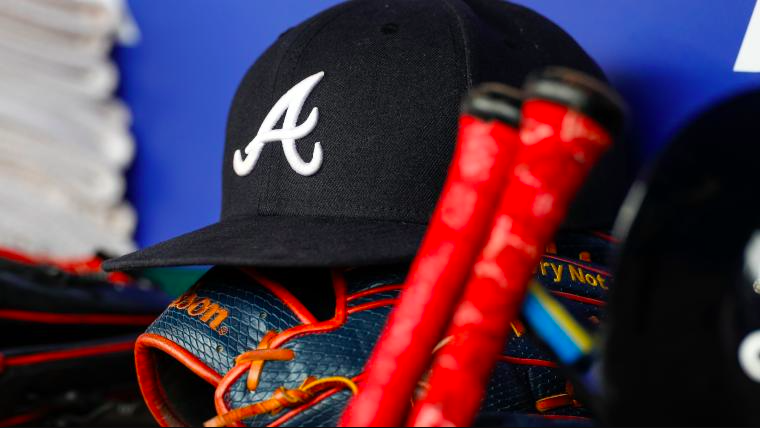The Atlanta Braves, fresh off a successful 2023 campaign, remain one of baseball’s most aggressive and resourceful teams when it comes to building a championship roster. With an already stacked core of talent, rumors of a potential blockbuster trade targeting a $14 million former Cy Young finalist have surfaced, sparking excitement and debate among fans and analysts alike. This hypothetical move would not only address a key area of need but also signal the Braves’ unwavering commitment to sustaining their status as perennial World Series contenders.
The player in question is a high-caliber pitcher whose credentials as a former Cy Young finalist make him a tantalizing target. With a manageable $14 million salary and a track record of dominance, he would immediately bolster the Braves’ rotation, providing both experience and top-tier production. While the specifics of the trade package remain speculative, it’s clear that Atlanta would need to part with valuable assets, likely in the form of top prospects or young MLB-ready talent, to secure such an impact player.
For the Braves, this trade idea stems from their need to solidify their starting rotation. Although their 2023 staff was anchored by Spencer Strider, Max Fried, and Bryce Elder, depth concerns lingered throughout the season due to injuries and inconsistency from the back end of the rotation. Adding a pitcher of this caliber would not only deepen their rotation but also provide a formidable 1-2-3 punch in Strider, Fried, and the new acquisition, giving them an edge in both the regular season and the playoffs.
From a financial perspective, the $14 million salary is a relatively modest commitment for a team like the Braves, who have been efficient in managing their payroll despite locking up multiple young stars to long-term deals. Atlanta’s front office, led by Alex Anthopoulos, has demonstrated a willingness to take calculated risks in pursuit of championship glory, as evidenced by their acquisitions of players like Matt Olson and their savvy trades to address midseason needs. This potential move would align with their strategy of acquiring high-impact talent while maintaining financial flexibility.
However, the trade would come with its challenges and risks. First, parting with top prospects could deplete Atlanta’s farm system, which has been instrumental in fueling their sustained success. Players like AJ Smith-Shawver, Vaughn Grissom, or Jared Shuster might be included in such a deal, raising concerns about the team’s ability to replenish its roster in the future. Additionally, the pitcher’s recent performance and injury history would need to be carefully evaluated to ensure the move doesn’t backfire. While his Cy Young-caliber seasons showcase his ceiling, a decline in velocity or command could signal that his best years are behind him.
For the player’s current team, the motivation to trade a former Cy Young finalist likely revolves around financial flexibility and a desire to retool for the future. Moving his $14 million salary would free up resources for other needs, while the return of young talent from Atlanta could accelerate their rebuilding or retooling efforts. This win-win dynamic makes the trade feasible, as both sides stand to benefit from addressing their respective priorities.
The impact of such a trade on the Braves would be profound. With an already potent offense featuring stars like Ronald Acuña Jr., Austin Riley, and Ozzie Albies, the addition of a top-tier pitcher would further enhance their chances of dominating the National League. It would also signal to their competitors, particularly the Philadelphia Phillies and Los Angeles Dodgers, that the Braves are fully committed to remaining atop the MLB hierarchy. In the postseason, where pitching depth often separates contenders from pretenders, having another ace-level arm could be the difference between falling short and hoisting another championship trophy.
In conclusion, the idea of the Braves orchestrating a blockbuster trade for a $14 million former Cy Young finalist is both tantalizing and strategically sound. While it would require significant sacrifices in terms of prospects and resources, the potential rewards—both immediate and long-term—could far outweigh the risks. For a team that has already demonstrated its ability to compete at the highest level, this move would reinforce their commitment to excellence and position them as a favorite to contend for multiple championships in the years to come.
